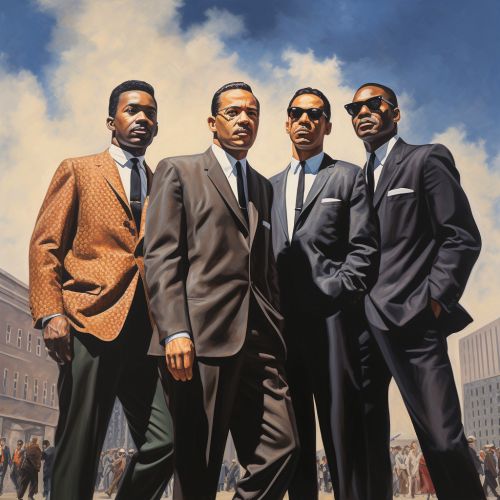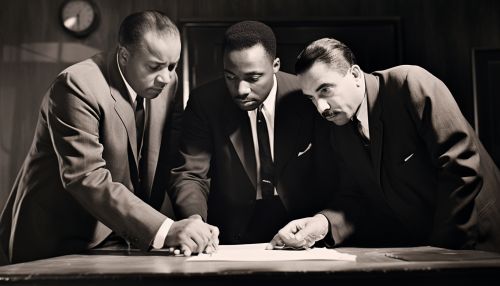March on Washington
Background
The Civil Rights Movement in the United States was a decades-long struggle by African Americans and their like-minded allies to end institutionalized racial discrimination, disenfranchisement, and racial segregation. The March on Washington was one of the most significant events of this movement, symbolizing a collective demand for racial equality and economic justice.
Planning
The March on Washington was planned by a group of civil rights, labor, and religious organizations, collectively known as the "Big Six." These organizations included the NAACP, the SCLC, and the CORE, among others. The organizers aimed to shed light on the political and social challenges African Americans continually faced across the country.


The March
On August 28, 1963, more than 200,000 demonstrators took part in the March on Washington. The marchers gathered at the Washington Monument and moved towards the Lincoln Memorial, where the day's speeches were to be held. The march was peaceful, with participants singing songs of freedom and carrying signs that demanded equal rights for all.
Speeches and Performances
The event included speeches from the major civil rights leaders of the time, including Martin Luther King Jr., who delivered his iconic "I Have a Dream" speech. This speech, which called for an end to racism and for the establishment of civil and economic rights, became a defining moment in the history of American civil rights.
Impact
The March on Washington played a crucial role in the passage of the Civil Rights Act of 1964, which outlawed discrimination based on race, color, religion, sex, or national origin. It also led to the creation of the Voting Rights Act of 1965, which prohibited racial discrimination in voting.
Legacy
The March on Washington remains one of the largest and most successful protests in American history. It not only brought the civil rights struggle to the forefront of America's consciousness but also set a standard for future social protest movements.
